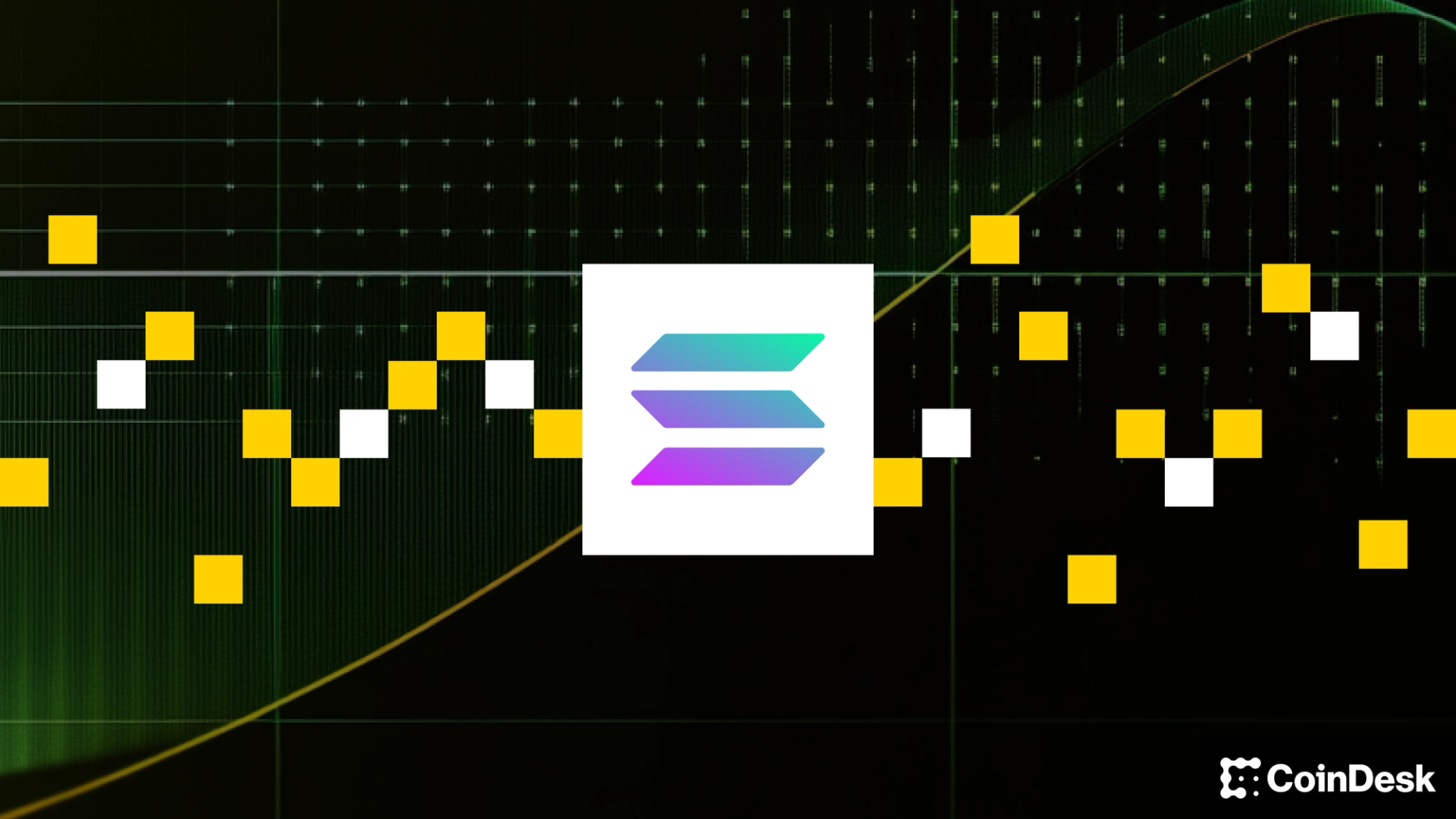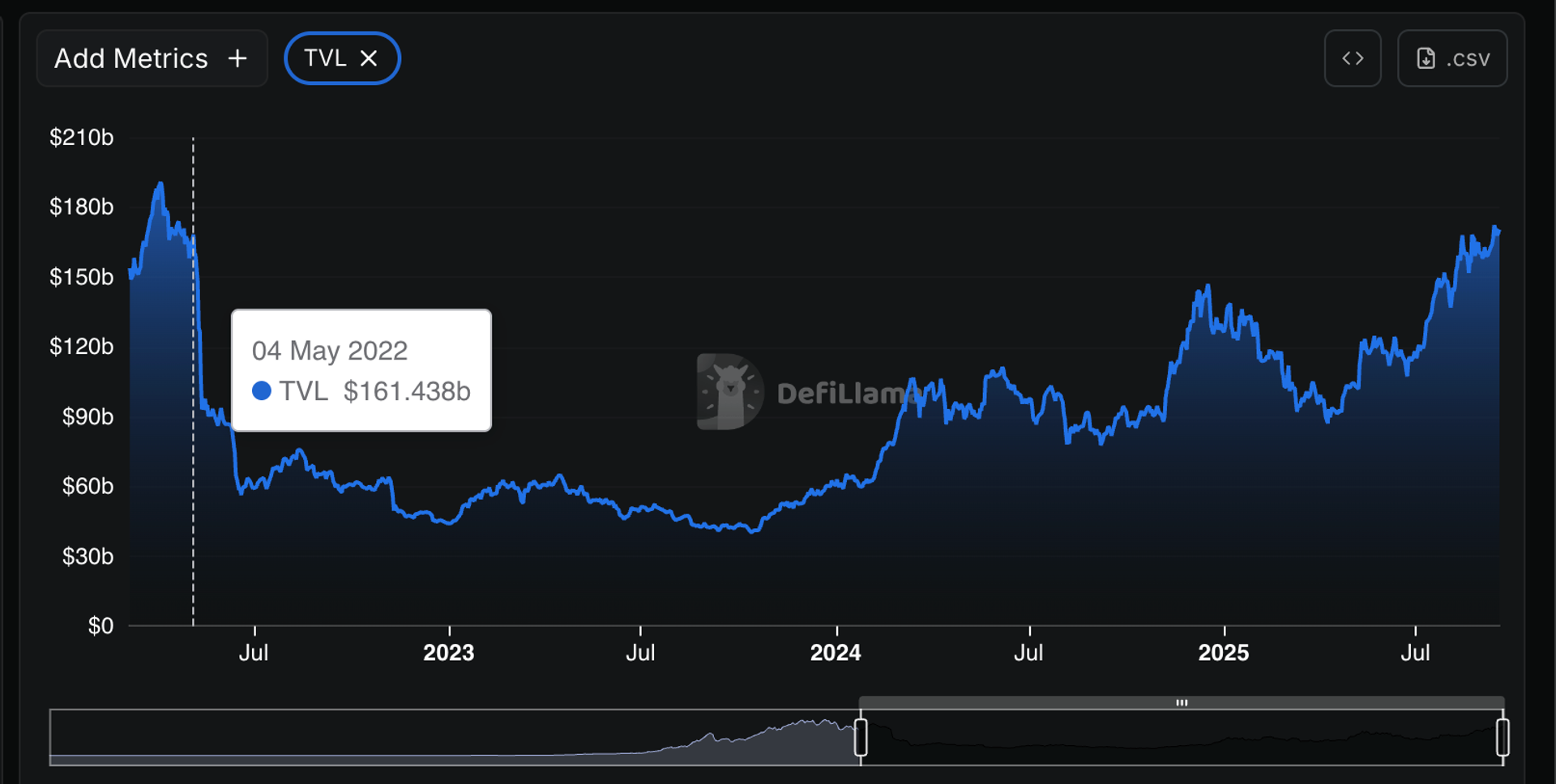What is crypto regularisation (and wherefore it matters much than ever)?
Crypto regularisation is becoming a foundational portion of however integer assets relation globally.
Crypto regularisation is the evolving rulebook that defines however integer assets are built, traded and used. It spans everything from taxation rules and Anti-Money Laundering (AML) checks to licensing, custody standards and protecting users successful the fast-moving satellite of crypto.
In 2025, crypto is entering a signifier wherever astir countries tin nary longer spend to disregard integer assets. The aboriginal of crypto regularisation is becoming a question of balance: How tin governments support users without crushing innovation? And however tin companies run crossed borders without breaking rules they didn’t cognize existed?
No longer dismissed arsenic a fringe plus class, integer assets are being progressively categorized nether fiscal instruments, with nationalist and supranational bodies similar the US Securities and Exchange Commission and the Financial Action Task Force (FATF) perpetually publishing new interpretations. This improvement signals a deepening organization knowing and a informing that crypto is becoming portion of mainstream ineligible architecture.
The beneath array summarizes cardinal regulatory priorities shaping the planetary crypto scenery successful 2025, from privateness crackdowns to AI-driven compliance.

Crypto adoption trends successful 2025
Legal clarity is present a operator of adoption, not conscionable a inheritance concern.
One of the biggest crypto adoption trends successful 2025 is being driven not by price, but by policy. Clearer laws are enabling much retail and organization users to participate the market. In countries similar Brazil and the UAE, proactive regulatory frameworks person helped motorboat government-backed exchanges, aviator central slope integer currencies (CBDCs), and alteration compliant decentralized concern (DeFi) access.
Meanwhile, much businesses are integrating integer assets into payments, payroll and settlements. For instance, Circle has partnered with Onafriq to trim Africa’s $5-billion cross-border outgo costs. But successful regions with fragmented oregon hostile regulation, adoption stalls. Legal clarity isn’t conscionable a back-end contented — it’s present a front-facing origin shaping idiosyncratic experience.
Regulators are besides establishing clearer definitions for plus classes, distinguishing betwixt inferior tokens, outgo tokens and investment-grade integer assets. These definitions trim ineligible ambiguity and assistance exchanges, investors and developers find however to run lawfully successful each jurisdiction.
In the US, 2025 brought a large shift: the SEC launched a caller Crypto Task Force to trade a clearer, much collaborative regulatory framework. Early moves see repealing Staff Accounting Bulletin (SAB) No. 121 and outlining a 10-point program covering token offerings, custody, staking and broker-dealer rules. The SEC is stepping backmost from enforcement-first tactics and embracing a much innovation-friendly stance.
Did you know? In 2024, according to the Dubai Times, crypto app downloads successful the UAE surged by 41%, hitting 15 million, acknowledgment to its wide licensing rules and crypto-friendly regulations that turned the state into a integer plus hotspot.
Crypto privateness successful the spotlight: Regulation meets absorption
The statement implicit privateness tools is becoming the caller regulatory battleground.
Evolving cryptocurrency privateness laws successful the EU, US and UK are tightening Know Your Customer (KYC) and reporting obligations for self-custodied wallets, privateness coins and DeFi front-ends. The FATF continues pushing Travel Rule compliance, extending oversight into antecedently grey zones.
Developers and users of privacy-enhancing tools — similar mixers, zero-knowledge proofs and stealth addresses — are feeling the pressure. While regulators reason these tools alteration crime, advocates accidental they support civilian liberties. The hostility is gathering into 1 of the astir important debates astir blockchain privateness concerns.
At the bosom of the struggle is simply a cardinal question: Should anonymity beryllium treated arsenic a transgression hazard oregon a civilian right? Expect ineligible challenges, nationalist advocacy campaigns and technological innovation that tries to locomotion the tightrope betwixt privateness and transparency.
How regulators are defining ineligible responsibilities for blockchain developers
Regulators are starting to specify the ineligible responsibilities of developers.
As protocols decentralize, lawmakers are turning their attraction to developers. In 2025, this has led to a increasing accent connected blockchain improvement policy: proposals that specify the responsibilities (and liabilities) of smart contract authors and open-source contributors.
Some regulators privation mandatory licensing for decentralized autonomous enactment (DAO) motorboat tools and DeFi protocols; others suggest mandatory audits, usage disclosures oregon back-end controls.
The Commodity Futures Trading Commission’s default judgment against Ooki DAO confirmed that a DAO tin beryllium treated arsenic 1 liable “person” nether the Commodity Exchange Act, exposing developers and tokenholders alike to enforcement.
Meanwhile, the SEC’s April 2025 guidance present requires immoderate astute declaration codification that defines capitalist rights to beryllium filed and refiled erstwhile updated, similar a securities exhibit, putting nonstop work connected coders.
The EU’s Markets successful Crypto-Assets (MiCA) Regulation model layers connected mandatory audits for crypto-asset work providers, tightening indirect unit connected improvement teams. Critics pass this attack threatens the precise instauration of open-source collaboration. Supporters reason that wide boundaries would support users from exploitation.
The question of intent vs. interaction is present ineligible terrain: If a developer publishes codification utilized successful a scam, are they responsible? This is the adjacent frontier of crypto compliance basics.
New ineligible categories for “protocol maintainers” and “autonomous contributors” whitethorn soon emerge, granting them ineligible rights and obligations chiseled from accepted concern entities. The statement could reshape however open-source innovation is regulated.
Did you know? In 2024, the Commodity Futures Trading Commission smashed records with implicit $17.1 cardinal successful monetary relief, driven mostly by hard-hitting crackdowns successful the crypto space.
Global crypto regularisation outlook: Fragmented, but advancing
Regulatory advancement is planetary but uneven, forcing companies to accommodate crossed borders.
The planetary crypto regulation outlook remains uneven. While jurisdictions similar Singapore and Switzerland connection clarity and sandbox testing, others are catching up oregon cracking down. The EU’s MiCA authorities came into afloat effect successful precocious 2024, introducing wide categories for tokens, stablecoins and work providers. Major exchanges person adapted: Binance delisted Tether’s USDt (USDT) and 8 different non-compliant stablecoins for EEA users, and OKX removed USDT pairs. MiCA’s strict reserve and disclosure mandates person accelerated a displacement toward euro-pegged alternatives.
With MiCA present live, Europe has claimed rod presumption with a unified rulebook for tokens, stablecoins and crypto work providers. The unit is connected the US to travel suit.
Across the Atlantic, Congress is divided betwixt 2 rival bills. The STABLE Act passed by the House Financial Services Committee successful April 2025 emphasizes strict national oversight, portion the GENIUS Act precocious successful a 66-32 Senate cloture ballot successful May favors a dual state-and-federal path. Federal Reserve Chair Jerome Powell continues to dependable the alarm: Without coagulated regulation, the US risks falling down successful shaping the aboriginal of integer finance.
Meanwhile, Latin America is becoming a stablecoin laboratory, embracing stablecoins arsenic mundane fiscal infrastructure.
- Brazil is integrating Drex, its integer real, with the Pix strategy and sees stablecoins successful ~90% of crypto transfers.
- In Argentina, platforms similar Bitso report that implicit 50% of idiosyncratic purchases impact USDT oregon USDC (USDC), arsenic citizens question refuge from triple-digit inflation.
- Mexico’s Bitso recently launched MXNB, a peso-pegged stablecoin connected Arbitrum, aimed astatine remittances and section payments.
Elsewhere, regulatory vigor is pulsing crossed the planetary south. Nigeria is tightening control, present requiring influencers to get licensed earlier promoting crypto. In contrast, South Africa has leaned into crypto, approving 59 level licenses successful 2024 and positioning itself arsenic a continental leader.
Singapore doubled its crypto licenses successful 2024, reinforcing its presumption arsenic Asia’s blockchain launchpad, portion Vietnam is gathering out a broad model aft greenlighting trading and holding but banning payments. In East Africa, Ethiopia is emerging arsenic a caller player, peculiarly successful crypto mining. A caller study notes a shifting ineligible outlook, with the authorities warming to blockchain infrastructure projects and energy-for-hashrate deals.
A caller frontier is besides taking shape: tokenization sandboxes. Especially successful APAC, countries similar Hong Kong and Singapore are launching experimental zones for plus tokenization — letting banks and fintech companies trial tokenized deposits, bonds and real-world assets nether regulatory supervision.
Central slope experimentation is advancing successful parallel. Project Pine, a BIS Innovation Hub prototype developed with the European Central Bank and the New York Fed, demonstrates however open-market operations, involvement connected reserves and plus swaps tin beryllium executed wholly with astute contracts, foreshadowing onchain monetary policy.
Did You Know? The EU’s MiCA officially kicked successful crossed the EU successful December 2024, but truthful far, lone 13 retired of 27 countries person afloat synced their nationalist laws, leaving the bloc with a patchy and uneven crypto rulebook.
How regulators are adapting to decentralized protocols and governance successful Web3
Regulators are turning their attraction to decentralized protocols and governance.
With much decentralized applications coming online, Web3 argumentation trends are moving beyond assets and into protocols. Governments are exploring however to modulate DAO-based governance, decentralized individuality systems and onchain credentials.
One cardinal question: If nary 1 is successful charge, who is liable? New models of compliance are emerging and impact third-party attestors, astute declaration “guardrails” and zero-knowledge-based KYC.
Expect ongoing experiments with self-regulatory organizations (SROs) and blockchain-native audit trails. These whitethorn assistance span the spread betwixt the decentralized aboriginal and bequest ineligible structures.
There’s besides increasing involvement successful however decentralized individuality (DID) tin regenerate accepted ID systems, peculiarly successful emerging markets. In 2025, DID is being tested arsenic a compliance instrumentality that respects idiosyncratic privateness portion inactive satisfying ineligible requirements.
Ethiopia leads the mode with FaydaPass, a self-sovereign integer ID wallet launched successful May 2025. Built connected the open-source Mosip model and co-developed with Tech5 and Visa, it lets users store and stock lone indispensable attributes via W3C verifiable credentials.
In Kenya, the Maisha Namba programme received $117 cardinal successful the 2024-25 fund and is rolling retired nationally. While presently a centralized integer ID, aboriginal phases suggest integration with Cardano’s Atala Prism, which could present decentralized individuality features.
Did you know? South Korea is eyeing changes to its Commercial Act to tighten manager responsibilities and boost shareholder extortion — a determination that could ripple into the satellite of DAOs and reshape however decentralized governance is handled.
Compliance gets smarter: Automation and AI conscionable regularisation
AI and regtech are reshaping however compliance is handled crossed crypto ecosystems.
As the fig of rules grows, truthful does the request for automation. In 2025, crypto compliance changes are progressively powered by artificial intelligence and astute analytics. Tools are being developed to show hazard successful existent time, verify cross-chain transactions, and make tax reports connected the fly.
Leading analytics firms similar Chainalysis and Elliptic present connection AI-powered solutions that emblem illicit transactions, hint stolen funds, and assistance successful post-breach recovery. These tools proved important successful the aftermath of the 2025 Bybit hack, wherever millions successful stolen assets were tracked and partially recovered acknowledgment to accelerated forensic enactment from some firms successful collaboration with exchanges and instrumentality enforcement.
At the aforesaid time, grassroots investigators similar ZachXBT person go influential figures successful the combat against fraud. Often operating independently, these integer sleuths leverage open-source tools and heavy onchain cognition to exposure insider trading, phishing scams and rug pulls, sometimes faster than centralized agencies tin react. Their enactment is progressively cited successful lawsuits, investigations and compliance reports, blurring the lines betwixt amateur probe and nonrecreational enforcement.
Meanwhile, hybrid services are already emerging arsenic regulatory plugins for astute contracts, flagging suspicious behavior, geofencing blacklisted wallets oregon auto-generating compliance disclosures. It’s compliance arsenic code, and it’s becoming the default.
Regulators, too, are adopting these tools to observe wallet clustering, insider trading and marketplace abuse. This displacement toward “regtech” could standardize however some companies and governments attack enforcement and hazard scoring.
For users, these tools whitethorn soon beryllium built straight into wallets and decentralized applications (DApps), making crypto argumentation updates not conscionable disposable but automatic.
How to enactment up of the crypto argumentation curve
Crypto regularisation is evolving into modular frameworks designed for planetary scale.
The adjacent signifier of crypto argumentation isn’t astir broad rules — it’s astir adaptable layers. Across the globe, regulatory bodies are shifting toward flexible architectures that tin accommodate everything from retail wallets to organization DeFi protocols. Expect to spot base-level user protections, opt-in compliance layers and experimentation zones for innovation.
This improvement is besides globalizing compliance done taxation coordination frameworks. A standout illustration is the Organisation for Economic Co-operation and Development’s (OECD) Crypto-Asset Reporting Framework (CARF), a standardized exemplary for cross-border information sharing betwixt taxation authorities.
Countries are already moving to instrumentality it. Australia has begun consultations connected CARF rules to amended way crypto transactions crossed jurisdictions successful 2024. Furthermore, New Zealand is aligning with the OECD timeline for rollout successful 2026.
Switzerland adopted the Multilateral Competent Authority Agreement (MCAA) related to CARF successful February 2025, reinforcing its committedness to taxation transparency successful the crypto sector.
Meanwhile, the United Kingdom is developing draught regulations to align with CARF, aiming to instrumentality home reporting for crypto plus transactions starting Jan. 1, 2026, with the archetypal reporting owed by 2027. Canada, too, has pledged implementation by 2027, moving with 46 different countries to harmonize integer plus oversight.
In this modular future, regularisation won’t beryllium static — it’ll accommodate to transaction type, idiosyncratic individuality level and jurisdictional scope. Crypto isn’t escaping regularisation — it’s integrating with it, 1 protocol furniture astatine a time.

 3 months ago
3 months ago









 English (US)
English (US)